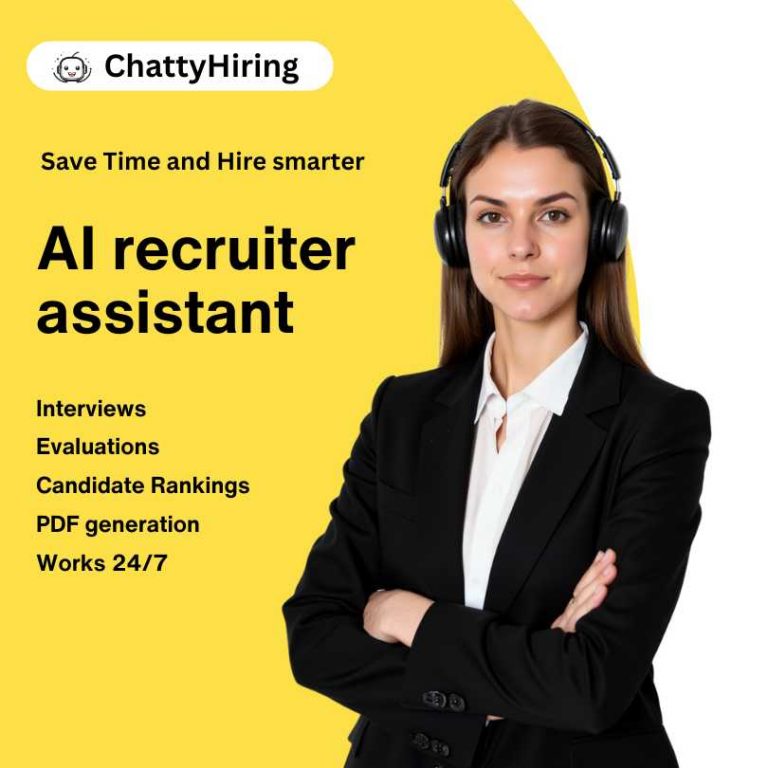In the competitive landscape of talent acquisition, CV screening serves as a critical first step in identifying the right candidates for job openings. This process is not merely about filtering out unqualified applicants; it is about strategically narrowing down a pool of potential hires to those who align closely with the organization’s needs and values. A well-executed CV screening process can save time and resources, allowing HR professionals to focus on candidates who are most likely to succeed in their roles.
According to research from HR Examiner, effective CV screening can significantly enhance the quality of hires, leading to improved employee performance and retention rates. Moreover, CV screening plays a pivotal role in shaping the overall candidate experience. A transparent and efficient screening process can foster a positive impression of the organization, even for those who may not advance to the interview stage.
Candidates appreciate clarity and fairness in how their applications are evaluated, which can enhance the employer’s brand reputation. As highlighted by TalentCulture, organizations that prioritize a thoughtful approach to CV screening are more likely to attract top talent and build a diverse workforce that reflects a variety of perspectives and experiences.
Key Takeaways
- CV screening is crucial for finding the right candidates and ensuring a successful hiring process.
- A clear screening process helps in identifying the most suitable candidates for the job.
- Technology can be used to streamline and automate the screening process for efficiency.
- Key qualifications and skills should be clearly defined and prioritized during the screening process.
- Work experience and achievements should be carefully evaluated to gauge a candidate’s potential for success in the role.
Developing a clear screening process
Creating a clear and structured CV screening process is essential for ensuring consistency and fairness in candidate evaluation. This begins with defining the criteria that will be used to assess applications. Organizations should collaborate with hiring managers to identify the specific qualifications, skills, and experiences that are most relevant to the role.
By establishing these parameters upfront, HR professionals can create a standardized rubric that guides their evaluation efforts. This not only streamlines the screening process but also minimizes the risk of overlooking qualified candidates due to subjective judgments. In addition to defining criteria, it is crucial to document the screening process itself.
This documentation should outline each step, from initial application review to final candidate selection. By having a clear roadmap, HR teams can ensure that all members involved in the hiring process are aligned and informed. Furthermore, this documentation can serve as a valuable resource for training new team members and for conducting post-hire evaluations to assess the effectiveness of the screening process.
As noted by HRZone, organizations that invest time in developing a clear screening process are better positioned to make informed hiring decisions.
Utilizing technology for efficient screening

In today’s digital age, leveraging technology for CV screening has become increasingly important. Applicant Tracking Systems (ATS) are designed to streamline the recruitment process by automating various aspects of candidate evaluation. These systems can quickly sift through large volumes of applications, identifying those that meet predefined criteria and flagging potential red flags for further review.
By utilizing ATS technology, HR professionals can significantly reduce the time spent on manual CV reviews, allowing them to focus on more strategic aspects of talent acquisition. Moreover, technology can enhance the accuracy of CV screening by minimizing human error and bias. Advanced algorithms can analyze candidate data more objectively than traditional methods, ensuring that decisions are based on relevant qualifications rather than subjective impressions.
Additionally, many ATS platforms offer features such as keyword optimization and predictive analytics, which can further refine the screening process. As highlighted by Workology, embracing technology in CV screening not only improves efficiency but also enhances the overall quality of candidate selection.
Identifying key qualifications and skills
| Qualifications | Skills |
|---|---|
| Education | Communication |
| Experience | Problem-solving |
| Certifications | Teamwork |
| Technical knowledge | Adaptability |
A successful CV screening process hinges on the ability to identify key qualifications and skills that align with the job requirements. This involves a thorough understanding of the role’s responsibilities and the competencies necessary for success. HR professionals should collaborate closely with hiring managers to develop a comprehensive list of must-have qualifications, including both hard skills—such as technical expertise—and soft skills—such as communication and teamwork abilities.
Once these qualifications have been established, it is essential to create a scoring system that allows for objective evaluation of candidates’ CVs. This scoring system should assign weight to different qualifications based on their importance to the role. For instance, if technical proficiency is critical for a position, it may carry more weight than other factors such as years of experience.
By employing this structured approach, organizations can ensure that they are prioritizing candidates who possess the most relevant skills and qualifications for the job at hand.
Evaluating work experience and achievements
When reviewing CVs, evaluating work experience and achievements is crucial in determining a candidate’s suitability for a position. This involves looking beyond job titles and dates of employment to assess the impact of a candidate’s contributions in previous roles. HR professionals should seek evidence of accomplishments that demonstrate not only technical capabilities but also problem-solving skills and leadership potential.
To effectively evaluate work experience, it is beneficial to consider the context in which candidates have operated. For example, candidates who have thrived in fast-paced environments or have successfully navigated organizational change may possess valuable skills that are transferable to new roles. Additionally, quantifiable achievements—such as revenue growth or project completion rates—can provide concrete evidence of a candidate’s effectiveness in previous positions.
As noted by TLNT, focusing on achievements rather than just responsibilities allows organizations to identify high-performing candidates who can drive results.
Assessing cultural fit and soft skills

While technical qualifications are essential, assessing cultural fit and soft skills is equally important in the CV screening process. Cultural fit refers to how well a candidate’s values align with those of the organization, which can significantly impact employee engagement and retention. HR professionals should look for indicators in candidates’ CVs that suggest alignment with company culture, such as involvement in team-oriented projects or participation in community service initiatives.
Soft skills—such as adaptability, communication, and emotional intelligence—are increasingly recognized as critical components of workplace success. These skills often determine how well individuals collaborate with others and navigate challenges within an organization.
To assess soft skills during CV screening, HR professionals can look for specific examples or experiences that highlight these attributes.
For instance, candidates who have led cross-functional teams or managed conflict resolution may demonstrate strong interpersonal skills that are valuable in any workplace setting.
Avoiding unconscious bias in screening
Unconscious bias can significantly impact the CV screening process, leading to unintentional favoritism or discrimination against certain candidates based on factors unrelated to their qualifications. To mitigate this risk, organizations must implement strategies that promote objective evaluation practices. One effective approach is to anonymize CVs during the initial screening phase by removing identifying information such as names, addresses, and educational institutions.
Additionally, training hiring teams on recognizing and addressing unconscious bias is essential for fostering an inclusive hiring environment. Workshops or training sessions can help team members become aware of their biases and develop strategies for making more equitable decisions during the screening process. As emphasized by HR Trend Institute, organizations that actively work to reduce bias in their hiring practices are more likely to build diverse teams that contribute to innovation and creativity.
Streamlining the screening process for better results
To achieve optimal results in CV screening, organizations must continuously evaluate and refine their processes. This involves gathering feedback from hiring teams about what works well and what could be improved. Regularly reviewing metrics such as time-to-hire and candidate quality can provide valuable insights into the effectiveness of the screening process.
Furthermore, organizations should consider implementing iterative improvements based on data-driven insights. For example, if certain qualifications consistently correlate with high-performing hires, these criteria can be emphasized more heavily in future screenings. By adopting a mindset of continuous improvement, organizations can enhance their CV screening processes over time, ultimately leading to better hiring outcomes.
In conclusion, effective CV screening is a multifaceted process that requires careful consideration of various factors—from defining clear criteria to leveraging technology and addressing unconscious bias. By prioritizing these elements, organizations can streamline their hiring processes while ensuring they attract top talent that aligns with their values and goals. As highlighted by sources like GetHppy and HRE Executive, investing in a robust CV screening strategy not only enhances recruitment efficiency but also contributes to building a strong organizational culture and workforce.
If you are interested in learning more about how AI can improve the quality of hire, check out this article on quality of hire. This article discusses the importance of finding the right candidates for your organization and how AI can help streamline the hiring process to ensure you are making the best hiring decisions. By utilizing AI candidate assessment tools, like the ones mentioned in this article, you can significantly reduce your time to hire and improve the overall quality of your workforce.
FAQs
What is CV screening?
CV screening is the process of reviewing and evaluating job applicants’ resumes or CVs to determine if they meet the requirements for a specific job position.
Why is CV screening important?
CV screening is important because it helps employers to efficiently identify and shortlist candidates who possess the necessary skills, qualifications, and experience for a job role.
What are the key factors considered during CV screening?
Key factors considered during CV screening include relevant work experience, education, skills, certifications, and any other qualifications that are required for the job.
How is CV screening typically conducted?
CV screening is typically conducted by human resources professionals or hiring managers who review and compare applicants’ CVs against the job requirements and qualifications.
What are the benefits of CV screening?
The benefits of CV screening include saving time and resources by quickly identifying qualified candidates, reducing the risk of hiring unqualified individuals, and ensuring a more efficient and effective recruitment process.
-

A passionate advocate for the future of HR innovation. With expertise in leveraging AI to revolutionize recruitment processes, Carlos has a clear vision: empower HR teams while creating meaningful candidate experiences.
View all posts





